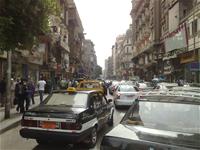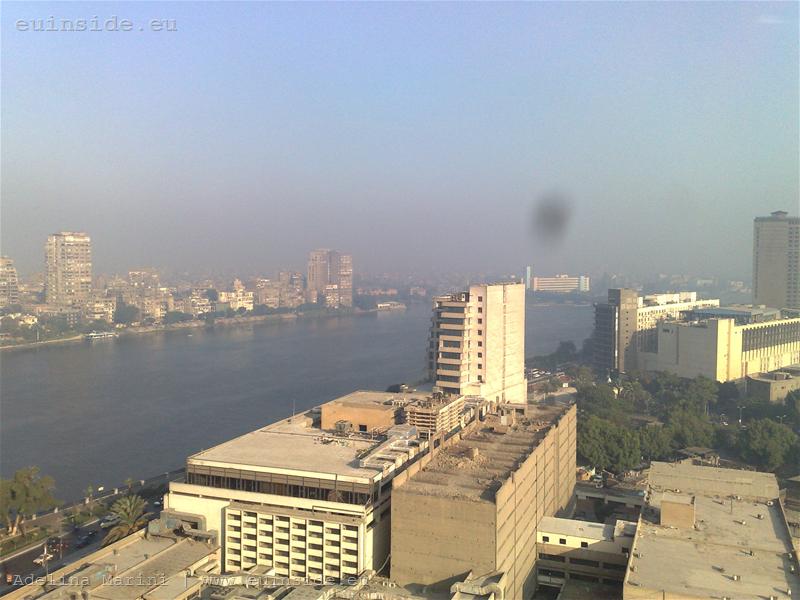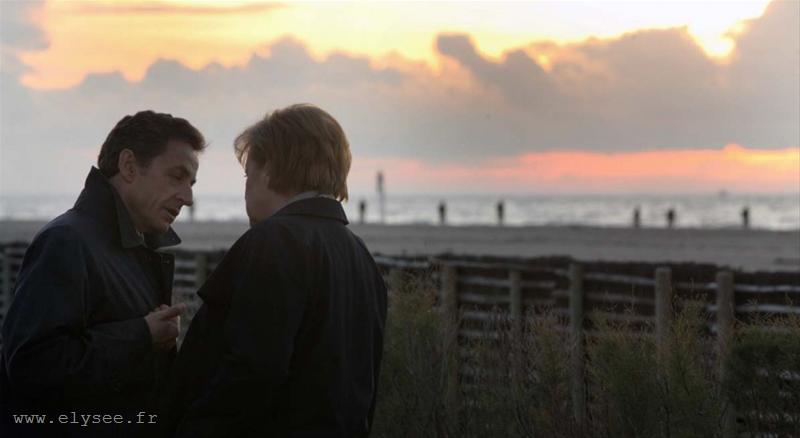Egypt aims by 2020 20% of its electricity to come from renewables
Adelina Marini, November 6, 2009
 The first thing that struck me when I arrived in Cairo was the smog. The air is so polluted that you can hardly breathe. And, sometimes when there is no wind, you can hardly see the outlines of the building in front of you. Naturally, against the background of the constant talking about the new climate change agreement in Copenhagen, I thought that it is in a country like Egypt where one can understand the scale of global warming, the air pollution and to explain it - you can see the pollution, you can smell it, you can feel it with your lungs.
The first thing that struck me when I arrived in Cairo was the smog. The air is so polluted that you can hardly breathe. And, sometimes when there is no wind, you can hardly see the outlines of the building in front of you. Naturally, against the background of the constant talking about the new climate change agreement in Copenhagen, I thought that it is in a country like Egypt where one can understand the scale of global warming, the air pollution and to explain it - you can see the pollution, you can smell it, you can feel it with your lungs.
That is the reason why when the Egyptian minister of international cooperation Ms. Fayza Abu Naga told me that Egypt has the same goal as the EU by 2020 20% of its electricity to be produced by renewables, I was skeptical. I said to myself, here even 50% cannot be felt. But after a thorough analysis I found out that the situation might have not be that bad if Egypt had more greenery and if it rained more often (usually in the valley if the Niles where the most of the 80 mn people in Egypt live, it rains no more than twice a year). However, the fight with the desert is severe and quite often Sahara wins.
20 mn of the overall population of Egypt live in Cairo. If you look upon it from an airplane, the Egyptian capital looks like a desert where millions of houses, covered with dust are situated. The greenery is scarce. But they have a wonderful park, built upon an old dung-hill. However, for 20 mn people that is not enough.
Egyptian capital looks like a desert where millions of houses, covered with dust are situated. The greenery is scarce. But they have a wonderful park, built upon an old dung-hill. However, for 20 mn people that is not enough.
Furthermore, in Cairo almost everyone has a car, older than 25 years.
 "Of course this is a great challenge but we know that we can achieve it because Egypt is blessed with wonderful climate, with an abundance of sunshine. We have the territory with the most sunshine in the world as well as the strongest winds on the coast of the Red sea where we have 6 wind stations, built with the cooperation of our partners, mainly from Europe - 2 of the stations are German, 1 is Danish and 1 is Spanish. This is the field with the fastest developing cooperation with Europe", the Egyptian minister adds.
"Of course this is a great challenge but we know that we can achieve it because Egypt is blessed with wonderful climate, with an abundance of sunshine. We have the territory with the most sunshine in the world as well as the strongest winds on the coast of the Red sea where we have 6 wind stations, built with the cooperation of our partners, mainly from Europe - 2 of the stations are German, 1 is Danish and 1 is Spanish. This is the field with the fastest developing cooperation with Europe", the Egyptian minister adds.
But she did not answer the question of euinside about how much money Egypt wants to get from the developed countries to achieve this goal. It was not clear in what way the North African state will reduce its carbon emissions and with how much. The fact is though, that Egypt is expecting from the developed countries, mainly from Europe, technologies and not only to import but to learn how to develop technologies on its own.
This position is worth respect especially against the background of the statement of the  Bulgarian prime minister after the European Council in the end of October when he said that the new EU member states should not be forced to pay for the pollution because they are poorer than countries like Brazil and Russia, classified as developing countries. After all the target is one - and it is all of us to slow down the process of climate change before it has become irreversible. Because, in the end of the day, if we find ourselves one day under water or starving, it would not matter if we are rich or poor.
Bulgarian prime minister after the European Council in the end of October when he said that the new EU member states should not be forced to pay for the pollution because they are poorer than countries like Brazil and Russia, classified as developing countries. After all the target is one - and it is all of us to slow down the process of climate change before it has become irreversible. Because, in the end of the day, if we find ourselves one day under water or starving, it would not matter if we are rich or poor.
And why Egypt is one of the countries that desperately need aid, you will read soon on euinside.
 | © euinside
| © euinside | © The Council of the European Union
| © The Council of the European Union | © www.elysee.fr
| © www.elysee.fr